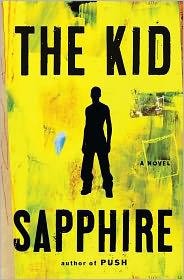Book News and New Book Reviews
Just a sampling of our new materials (right side)!
Wednesday, August 31, 2011
The gap year : a novel
Monday, August 29, 2011
Tolstoy and the purple chair : my year of magical reading
Saturday, August 27, 2011
What Alice forgot
Friday, August 26, 2011
A tiger in the kitchen : a memoir of food and family
Thursday, August 25, 2011
Anatomy of a disappearance : a novel
Wednesday, August 24, 2011
Precious objects : a story of diamonds, family and a way of life
Tuesday, August 23, 2011
The accident : a novel
Monday, August 22, 2011
The takedown : a suburban mom, a coal miner's son, and the unlikely demise of Colombia's brutal Norte Valle Cartel
Saturday, August 20, 2011
The lantern : a novel
Friday, August 19, 2011
Incognito : the secret lives of the brain
Wednesday, August 17, 2011
Sex on the Moon
A promising NASA recruit throws everything away for a girl, illustrating the fascinating consequences when science, ambition, and starry-eyed love collide. In bestselling author Mezrich's telling, Thad Roberts, while at the University of Utah, became determined to be an astronaut and threw himself into science courses, He left his wife behind when he was accepted to the elite Johnson Space Center Cooperative Program in Houston, the training ground for NASA scientists. Despite his lack of an engineering background, Roberts excelled in the life sciences department. While cataloguing samples, he noticed the moon rocks NASA categorized as "trash"samples returned after experiments. Then Roberts met and fell in love with a new recruit, Rebecca, and planned to give her the moon, or at least its profits, by stealing the "used" moon rocks. Roberts devised the heist and arranged an online sale with a mineral collector in Belgium. The suspicious buyer alerted the FBI, which set up a sting, and Roberts was sentenced to eight years in federal prison. Mezrich (The Accidental Billionaires, from which The Social Network was adapted) has perfected his intensely readable brand of nonfiction: talented, often unscrupulous, young people skyrocketing to the top only to tumble back to earth. (July) Copyright 2011 Reed Business Information. - Publisher's Weekly (Check Catalog)
Tuesday, August 16, 2011
Fallen
Still more proof, if any were needed, that the most monstrous demons in Grant County, Ga., are lurking in the master bedroom.
Faith Mitchell, of the Georgia Bureau of Investigation, returns home late from a training seminar to find her house trashed, her baby daughter locked in the shed, a man lying dead on the laundry-room floor—Faith herself will kill two other intruders before they can escape, and a third corpse will turn up in the trunk of the family car—and her mother gone. Capt. Evelyn Mitchell was eased into retirement from the Atlanta PD years ago after her narcotics squad was implicated in a web of corruption. Two of her former colleagues are doing time; a third, former Det. Boyd Spivey, is on death row for murder. So it's not all that surprising that gang-bangers would have broken into her house looking for a big score. But why are their surviving colleagues in Los Texicanos and the Yellow Rebels suddenly so determined to annihilate each other, and how does Evelyn's abduction fit into the picture? "I think we must be caught in the middle of some kind of war," Faith's boss, GBI deputy director Amanda Wagner, tells Faith's partner, endlessly troubled Will Trent. The mounting body count, however, pales beside the ferocious conflicts among regulars in this high-octane series (Broken, 2010, etc.). Faith's brother Zeke, returning from an Air Force posting, instantly resumes his long feud with her. Will is alternately abused by Amanda Wagner and his spiteful wife Angie. And Faith's climactic showdown with her mother's abductor will reveal far more personal motives for the runaway mayhem than she ever could have imagined.
Ex–County Coroner Dr. Sara Linton does seem to be managing a break from her own Job-like sufferings, at least for this installment. - Kirkus Reviews (Check Catalog)
Faith Mitchell, of the Georgia Bureau of Investigation, returns home late from a training seminar to find her house trashed, her baby daughter locked in the shed, a man lying dead on the laundry-room floor—Faith herself will kill two other intruders before they can escape, and a third corpse will turn up in the trunk of the family car—and her mother gone. Capt. Evelyn Mitchell was eased into retirement from the Atlanta PD years ago after her narcotics squad was implicated in a web of corruption. Two of her former colleagues are doing time; a third, former Det. Boyd Spivey, is on death row for murder. So it's not all that surprising that gang-bangers would have broken into her house looking for a big score. But why are their surviving colleagues in Los Texicanos and the Yellow Rebels suddenly so determined to annihilate each other, and how does Evelyn's abduction fit into the picture? "I think we must be caught in the middle of some kind of war," Faith's boss, GBI deputy director Amanda Wagner, tells Faith's partner, endlessly troubled Will Trent. The mounting body count, however, pales beside the ferocious conflicts among regulars in this high-octane series (Broken, 2010, etc.). Faith's brother Zeke, returning from an Air Force posting, instantly resumes his long feud with her. Will is alternately abused by Amanda Wagner and his spiteful wife Angie. And Faith's climactic showdown with her mother's abductor will reveal far more personal motives for the runaway mayhem than she ever could have imagined.
Ex–County Coroner Dr. Sara Linton does seem to be managing a break from her own Job-like sufferings, at least for this installment. - Kirkus Reviews (Check Catalog)
Monday, August 15, 2011
Absolute Monarchs
From the disciple Peter to the reigning Benedict, accomplished British historian Norwich (The Middle Sea: A History of the Mediterranean, 2006, etc.) fashions a spirited, concise chronicle of the accomplishments of the most noteworthy popes.
The author is comfortable navigating this vast terrain, which is essentially the history of Christianity—and he even manages to make the numbing litany of events palatable. Moreover, Norwich is not above questioning historical interpretation, such as over the controversy over John Paul I's death in 1978—was he murdered? With Jesus' pronouncement to his disciple Simon, that "Thou art Peter, and on this rock I will build my church," the leaders of the fledgling Christian church began to organize themselves. Norwich doesn't dwell on St. Paul, but subsequent church elders in the first two centuries CE were Levantines—centered in the Greek-speaking world of the eastern Mediterranean—working to establish churches despite Roman persecution and mostly in Asia. The emperor Constantine's adoption of Christianity in the fourth century, and construction of a basilica dedicated to St. Peter on the Vatican Hill, boosted Christianity's profile enormously. However, marauding hordes laid waste to Rome over the centuries, and early popes had to solidify doctrine and orthodoxy, notably in the time of Gregory the Great and Leo II (who crowned Charlemagne). Norwich lingers over the schism between the Western and Eastern churches, the leaders of the Crusades, the seven popes who resided in Avignon, the rebuilding of the Roman Church during the Renaissance beginning under Nicholas V, the "monsters" (Alexander, Julius), the patrons of the arts (Leo X) and the rulers during the Counter-Reformation, who checked the tide of Protestantism. The author gracefully navigates through the challenges of the Age of Reason, revolution, the Risorgimento and the World Wars, examining the papal responses—e.g., Pius XII's silence in the face of the persecution of the Jews.
Norwich doesn't skirt controversies, ancient and present, in this broad, clear-eyed assessment. - Kirkus Reviews (Check Catalog)
The author is comfortable navigating this vast terrain, which is essentially the history of Christianity—and he even manages to make the numbing litany of events palatable. Moreover, Norwich is not above questioning historical interpretation, such as over the controversy over John Paul I's death in 1978—was he murdered? With Jesus' pronouncement to his disciple Simon, that "Thou art Peter, and on this rock I will build my church," the leaders of the fledgling Christian church began to organize themselves. Norwich doesn't dwell on St. Paul, but subsequent church elders in the first two centuries CE were Levantines—centered in the Greek-speaking world of the eastern Mediterranean—working to establish churches despite Roman persecution and mostly in Asia. The emperor Constantine's adoption of Christianity in the fourth century, and construction of a basilica dedicated to St. Peter on the Vatican Hill, boosted Christianity's profile enormously. However, marauding hordes laid waste to Rome over the centuries, and early popes had to solidify doctrine and orthodoxy, notably in the time of Gregory the Great and Leo II (who crowned Charlemagne). Norwich lingers over the schism between the Western and Eastern churches, the leaders of the Crusades, the seven popes who resided in Avignon, the rebuilding of the Roman Church during the Renaissance beginning under Nicholas V, the "monsters" (Alexander, Julius), the patrons of the arts (Leo X) and the rulers during the Counter-Reformation, who checked the tide of Protestantism. The author gracefully navigates through the challenges of the Age of Reason, revolution, the Risorgimento and the World Wars, examining the papal responses—e.g., Pius XII's silence in the face of the persecution of the Jews.
Norwich doesn't skirt controversies, ancient and present, in this broad, clear-eyed assessment. - Kirkus Reviews (Check Catalog)
Friday, August 12, 2011
Silver Sparrow
In her third novel set in Atlanta, Jones (The Untelling, 2005, etc.) writes about two African-American half sisters, only one of whom knows that the other exists until their father's double life starts to unravel.
When James Witherspoon, the owner of a successful limousine service, and Gwendolyn Yarboro have their marriage ceremony in 1969 four months after the birth of their baby Dana, Gwen knows that James already has a wife and an even younger baby. While James, who visits regularly if never often enough, and Gwen, a practical nurse, make sure Dana has every middle-class advantage, Dana grows up aware that her parents' "marriage" is a secret and that she cannot openly claim her father; James' devoted stepbrother Raleigh is listed on her birth certificate. Gwen and Dana habitually spy on James' legitimate wife Laverne and daughter Chaurisse, who live in blissful ignorance of James's bigamy. By adolescence, Dana, who attends a prestigious magnate high school and wants to attend Mount Holyoke, increasingly resents the plainer, less gifted Chaurisse, whose needs always seem to come first for James. After meeting Chaurisse by accident at a science fair, Dana finds ways for their paths to intersect. When she finally "befriends" Chaurisse, Chaurisse is thrilled that a popular girl likes her enough to visit her at home. Visits happen during hours Dana knows James will not be there. Dana's adolescent plans, for acceptance as much as revenge, inevitably go awry, but this is less a tragedy than a case of survival and making do. While Dana is at the novel's center, Jones gives both girls' points of view, allowing readers to empathize with each of James's families. Chaurisse may not know about Dana, but she is far from blissful in her ignorance, and her mother Laverne has endured more than her fair share of suffering. James is harder to fathom but also hard to hate.
Jones beautifully evokes Atlanta in the 1980s while creating gritty, imperfect characters whose pain lingers in the reader's heart. - Kirkus Reviews (Check Catalog)
When James Witherspoon, the owner of a successful limousine service, and Gwendolyn Yarboro have their marriage ceremony in 1969 four months after the birth of their baby Dana, Gwen knows that James already has a wife and an even younger baby. While James, who visits regularly if never often enough, and Gwen, a practical nurse, make sure Dana has every middle-class advantage, Dana grows up aware that her parents' "marriage" is a secret and that she cannot openly claim her father; James' devoted stepbrother Raleigh is listed on her birth certificate. Gwen and Dana habitually spy on James' legitimate wife Laverne and daughter Chaurisse, who live in blissful ignorance of James's bigamy. By adolescence, Dana, who attends a prestigious magnate high school and wants to attend Mount Holyoke, increasingly resents the plainer, less gifted Chaurisse, whose needs always seem to come first for James. After meeting Chaurisse by accident at a science fair, Dana finds ways for their paths to intersect. When she finally "befriends" Chaurisse, Chaurisse is thrilled that a popular girl likes her enough to visit her at home. Visits happen during hours Dana knows James will not be there. Dana's adolescent plans, for acceptance as much as revenge, inevitably go awry, but this is less a tragedy than a case of survival and making do. While Dana is at the novel's center, Jones gives both girls' points of view, allowing readers to empathize with each of James's families. Chaurisse may not know about Dana, but she is far from blissful in her ignorance, and her mother Laverne has endured more than her fair share of suffering. James is harder to fathom but also hard to hate.
Jones beautifully evokes Atlanta in the 1980s while creating gritty, imperfect characters whose pain lingers in the reader's heart. - Kirkus Reviews (Check Catalog)
Thursday, August 11, 2011
Haiti after the Earthquake
From the UN Deputy Special Envoy for Haiti and chair of the Department of Global Health and Social Medicine at Harvard Medical School, and members of his team, a searing firsthand account of the earthquake and its aftermath.
Farmer (Partner to the Poor: A Paul Farmer Reader, 2010, etc.) presents consequences of the outrage that U.S. law—e.g., the Foreign Assistance Act of 1961—makes it impossible to do what needs to be done in a country like Haiti. Relief and reconstruction funds cannot go to government agencies or to rebuild government infrastructure; instead, they must be funneled into NGOs. Haiti's government, writes the author, is operating out of a small police station on a shoestring budget. More than 40 percent of government employees were killed, and 28 out of 29 ministries were leveled. Yet, under the ruling law, because of Haiti's history of human-rights violations, the United States cannot contribute to rebuilding government infrastructure or paying public employees, including doctors, nurses and medical technicians. The NGOs and volunteers who receive the funds can't discuss policy priorities, make laws or coordinate the scale of activity required, and they siphon funds into overhead and operating costs. Farmer has been involved in Haiti for 25 years, during which time he has warned policy makers about the country's precarious position. Unfortunately, the results have been very close to what he was predicted for years—at least 2 million people are still displaced, one-third of the population is directly affected and cholera has become a major problem. Other contributors to this book include Edwidge Danticat, Evan Lyon and Dubique Kobel.
An eye-opener of a report and a wake-up call that change is needed. - Kirkus Reviews (Check Catalog)
Farmer (Partner to the Poor: A Paul Farmer Reader, 2010, etc.) presents consequences of the outrage that U.S. law—e.g., the Foreign Assistance Act of 1961—makes it impossible to do what needs to be done in a country like Haiti. Relief and reconstruction funds cannot go to government agencies or to rebuild government infrastructure; instead, they must be funneled into NGOs. Haiti's government, writes the author, is operating out of a small police station on a shoestring budget. More than 40 percent of government employees were killed, and 28 out of 29 ministries were leveled. Yet, under the ruling law, because of Haiti's history of human-rights violations, the United States cannot contribute to rebuilding government infrastructure or paying public employees, including doctors, nurses and medical technicians. The NGOs and volunteers who receive the funds can't discuss policy priorities, make laws or coordinate the scale of activity required, and they siphon funds into overhead and operating costs. Farmer has been involved in Haiti for 25 years, during which time he has warned policy makers about the country's precarious position. Unfortunately, the results have been very close to what he was predicted for years—at least 2 million people are still displaced, one-third of the population is directly affected and cholera has become a major problem. Other contributors to this book include Edwidge Danticat, Evan Lyon and Dubique Kobel.
An eye-opener of a report and a wake-up call that change is needed. - Kirkus Reviews (Check Catalog)
Wednesday, August 10, 2011
The Kid
Fifteen years and an Oscar-nominated movie adaptation have passed by since Push, and, with Precious long dead, Sapphire unfurls the story of her son, Jamal Abdul Louis Jones. Orphan Jamal winds up at a foster home where he's mocked and beaten to the point of having to be hospitalized. Fast forward, and Abdul, going by the name J.J., is at the St. Ailanthus School for boys, where he's sexually abused by priests and in turn sexually abuses a couple of boys at the school. When J.J. is thrown out of the school, he struggles to handle his own conflicting desires and the rigors of getting by in a tough world by himself, often with very little comprehension of consequences. J.J. is a great creation, if a sometimes frustrating one: Sapphire excels at getting readers into the head of a frightened, enraged, and frustrated wild child, but that isn't always the best vantage point from which to watch this heartbreaking story unfold. This is a sobering and unflinching study of the legacy of abuse, and while the narration can leave readers more puzzled than piqued, it's a harrowing story. (July) Copyright 2011 Reed Business Information. - Publisher's Weekly (Check Catalog)
Tuesday, August 9, 2011
Of Thee I Zing
While Laura Ingraham was walking through a Northern Virginia shopping mall one Saturday afternoon, it all became clear to her. Everywhere she turned, she saw signs of the impending disaster: zombie teens texting each other across a cafe table; a man having his eyebrows threaded at a kiosk; a fiftyish woman shoe-horned into a tube top and skinny jeans; and a storefront ad featuring a Victoria's Secret model spilling out of her push-up bra and into the faces of young passersby. Ingraham wondered to herself, "Is this it? Is this what our forefathers fought for? What my parents struggled for? I wonder if Victoria's Secret is still having that two-for-one sale?" A menacing force surrounds us. We see it, we feel it, we know it. The country we love is in grave peril. While politicians and "experts" prattle on about the debt crisis at home, and terrorism abroad, a more insidious homegrown threat is emerging. It endangers our future and undermines our present. The uncomfortable truth is: We have become our own worst enemy. The culture we have created is now turning on us. We're on the verge of drowning in our ignorance, arrogance, gluttony . . . can you believe there are only three shots of vanilla in a Caramel Macchiato?!?
Now in an act of patriotic intervention the most-listened-to woman in talk radio casts her satirical eye upon all that ails American society. In this sharp-witted, comic romp, Laura Ingraham takes you on a guided tour through ten levels of our cultural hell.
You know we're in trouble when . . .
- Airplane seats shrink--just as the passengers expand.
- Celebrity baby names go from the peculiar (Apple, Stetson, and Daisy Boo) to the pathetic (Bamboo, Blanket, and Bronx).
- People meticulously tend their virtual crops on Farmville, while their children eat takeout.
- "Breaking News" usually means it happened yesterday.
- The weddings last longer than the marriages.
- Facebook has become a verb and reading has become an ancient art form.
"Of Thee I Zing "is cultural commentary too funny to ignore, igniting a national conversation long past due. America, your cultural recovery begins here. - Publisher Marketing (Check catalog)
Now in an act of patriotic intervention the most-listened-to woman in talk radio casts her satirical eye upon all that ails American society. In this sharp-witted, comic romp, Laura Ingraham takes you on a guided tour through ten levels of our cultural hell.
You know we're in trouble when . . .
- Airplane seats shrink--just as the passengers expand.
- Celebrity baby names go from the peculiar (Apple, Stetson, and Daisy Boo) to the pathetic (Bamboo, Blanket, and Bronx).
- People meticulously tend their virtual crops on Farmville, while their children eat takeout.
- "Breaking News" usually means it happened yesterday.
- The weddings last longer than the marriages.
- Facebook has become a verb and reading has become an ancient art form.
"Of Thee I Zing "is cultural commentary too funny to ignore, igniting a national conversation long past due. America, your cultural recovery begins here. - Publisher Marketing (Check catalog)
Monday, August 8, 2011
Adrenaline
Edgar-finalist Abbott's outstanding tale of high intrigue set primarily in London and Amsterdam, the first in a series, introduces Sam Capra, a London-based CIA agent. When a terrorist group bombs the agency's British headquarters, killing 20 people, the authorities believe that Sam's pregnant wife, Lucy, also a U.S. spy, helped the terrorists and disappeared with them. Immediately suspected of being part of the bombing plot, Sam winds up in secret CIA custody and tortured. Refusing to believe Lucy has turned traitor, Sam finally escapes and begins his headlong search for her and his son, whom he believes has now been born. Sam offs terrorists, cracks wise, and shows a genuinely moving concern for his wife and son. Abbott (Panic), displaying a greater mastery of the genre than in previous books, hits full stride early on and never lets up. Readers who thrive on a relentless narrative pace and a straight line to the finish won't be disappointed. (July) Copyright 2011 Reed Business Information. - Publisher's Weekly (Check Catalog)
Thursday, August 4, 2011
In the Garden of Beasts: Love, Terror, and an American Family in Hitler's Berlin
by Erik Larson. Best-selling author Larson ("The Devil in the White City: Murder, Magic, and Madness at the Fair That Changed America") turns his considerable literary nonfiction skills to the experiences of U.S. ambassador to Germany William E. Dodd and his family in Berlin in the early years of Hitler's rule. Dodd had been teaching history at the University of Chicago when he was summoned by FDR to the German ambassadorship. Larson, using lots of archival as well as secondary-source research, focuses on Dodd's first year in Berlin and, using Dodd's diary, chillingly portrays the terror and oppression that slowly settled over Germany in 1933. Dodd quickly realized the Nazis' evil intentions; his daughter Martha, in her mid-20s, was initially smitten by the courteous SS soldiers surrounding her family, but over time she, too, became disenchanted with the brutality of the regime. Along the way Larson provides portraits based on primary-source impressions of Hermann Göring, Joseph Goebbels, Heinrich Himmler, and Hitler himself. He also traces the Dodds' lives after their time in Germany.
Request In the Garden of Beasts from the catalog.
Request In the Garden of Beasts from the catalog.
Wednesday, August 3, 2011
Rock the Casbah: Rage and Rebellion Across the Islamic World
by Robin Wright. To tell the story of the new world order forming in many Islamic nations, Wright begins in Tunisia, where the self-immolation of fruit vendor Mohamed Bouazizi inspired his angry fellow citizens to oust President Ben Ali in what is now referred to as "The Jasmine Revolution." Just a few weeks later, bloggers and activists in Egypt used Facebook and Twitter to organize protests against the government of Hosni Mubarak. Similar protests broke out in Saudi Arabia, Iran, Syria, Yemen, and other countries. Wright posits that the Muslim world is currently experiencing a sentiment of counter-jihad, "a struggle within the faith itself to rescue Islam's central values from a small but virulent minority." In Part Two of the book, Wright examines the cultural significance of anti-extremism, from the lyrics of the Tunisian hip-hop artist El General, to the feminist interpretations of the Koran by Amina Wadud. Maz Jabroni and other comedians on the Axis of Evil Comedy Tour are "waging their own often quirky campaigns against extremism," and creating alliances across cultural and religious lines. Part Three sums up what is at stake for these nations in turmoil and questions the Obama administration's wavering policies in addressing these international uprisings. Wright is an expert on the subject and this book is an accessible and riveting account for readers looking to learn more about the post-9/11 Islamic world.
Request Rock the Casbah from the catalog.
Request Rock the Casbah from the catalog.
Tuesday, August 2, 2011
For the Love of Physics: From the End of the Rainbow to the Edge of Time: A Journey Through the Wonders of Physics
by Walter Lewin. A pioneer in the field of X-ray astronomy, the author has been teaching three core physics courses at MIT since 1966, when he first came to the United States from Holland. Lewin writers that physics is "fundamentally an experimental science." A skeptic about the claims of string-theory proponents, who, he writes, have "yet to come up with a single experiment, a single prediction," the author contrasts it to his approach as an experimentalist and as a teacher whose aim is to explain "the remarkable ways in which physics illuminates the workings of the world." This has led him to a unique style of teaching in which he uses dramatic demonstrations in order to engage students' interest and awaken their excitement, while de-emphasizing mathematical formulas. He tells how, in a lecture on Newton's laws, he shows the difference between mass and weight by having a student on a scale stand on tiptoe, causing the scale to register an apparent weight gain. The lecture material covered in the book—from Galileo to rainbows to sound waves to electromagnetism—is accompanied by online links to videos of his classroom lectures. In the last third of the narrative, he gives a fascinating account of his own experimental work.
Request For the Love of Physics from the catalog.
Request For the Love of Physics from the catalog.
Monday, August 1, 2011
Levant: Splendour and Catastrophe on the Mediterranean
French and Ottoman historian Mansel ("Constantinople: City of the World's Desire, 1453–1924") re-creates the daily life and political idiosyncrasies of the three jewels of the Levant: Smyrna (now Izmir, in Turkey); Alexandria, Egypt; and Beirut, Lebanon. Beginning at the start of the Ottoman Empire's relationship with France in the 16th century, Mansel examines thoroughly each city and its people as a study in contrasts. Although Europeans and Ottomans, Jewish, Christian, and Muslim, lived and worked side by side in these Levantine ports, all was not cosmopolitan bliss. Mansel skillfully highlights the nationalist, religious, and cultural conflicts that plagued Smyrna, Alexandria, and Beirut well into the 20th century, while at the same time still acknowledging that the diversity of religion, nationalities, and ideas that coexisted in the Levant existed nowhere else in the world. VERDICT This is a rich piece of historical storytelling that will satisfy scholars, travelers, readers of travel literature, and everyone in between. Highly recommended for anyone with an interest in this complicated region of the world.—Veronica Arellano, California, MD Copyright 2011 Reed Business Information.
Request Levant from the catalog.
Request Levant from the catalog.
Subscribe to:
Comments (Atom)












